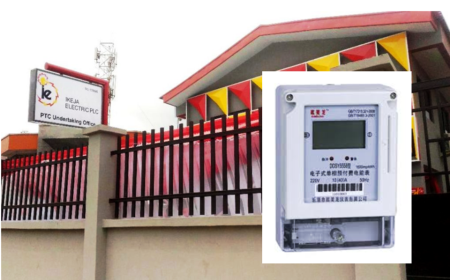The Nigerian Electricity Regulatory Commission (NERC) has introduced a transformative set of guidelines designed to revolutionize electricity revenue collection in the country. The “Guidelines on Registration and Engagement of Third-Party Collection Service Providers” mandate a digital, transparent, and accountable framework for all electricity payments, effectively ending the era of opaque and often inefficient revenue collection practices. This directive, effective immediately, empowers NERC to oversee and regulate all third-party agents involved in electricity bill collection, a move aimed at plugging revenue leakages and promoting a more robust and financially stable power sector. The guidelines are particularly pertinent to Electricity Distribution Companies (Discos) operating in states yet to establish their own electricity markets, providing a structured and standardized approach to revenue collection in these regions. The overarching goal is to align with the Federal Government’s cashless policy drive and instill greater financial discipline within the Nigerian Electricity Supply Industry (NESI).
A cornerstone of this new regulatory framework is the strict licensing requirement for all third-party Collection Service Providers (CSPs). Discos are now prohibited from engaging any agent lacking the necessary permits from the Central Bank of Nigeria (CBN). Furthermore, these CSPs must demonstrate verified integration with the Nigeria Inter-Bank Settlement System (NIBSS) and provide proof of strict tax compliance. This multi-layered vetting process ensures that only credible and financially sound entities are entrusted with the responsibility of collecting electricity revenues. This move is critical in safeguarding the financial integrity of the electricity market and preventing potential fraud or mismanagement of funds. The guidelines also emphasize the importance of standardized contracts between Discos and CSPs, with a focus on clear performance indicators and regular evaluations to ensure efficiency and accountability.
The new guidelines introduce a structured commission framework with capped rates across all payment channels, ensuring fairness and transparency for consumers. Transactions conducted via USSD below N5,000, for instance, will attract a maximum commission of N20, protecting low-income consumers from excessive charges. Rural agents, recognizing the unique challenges in these areas, are permitted to charge up to 3.25% per transaction, subject to a cap of N2,000. Importantly, industrial and commercial consumers, classified as Maximum Demand (MD) customers, will continue to enjoy zero commission charges on their bill payments. This policy builds upon NERC’s earlier Order No. NERC/183/2019, which eliminated cash payments for large-scale electricity users, further streamlining the payment process and reducing the risk of financial irregularities.
NERC’s directive emphasizes the adoption of digital payment methods across all platforms. The guidelines explicitly encourage the utilization of USSD codes, Point-of-Sale (POS) terminals, vending kiosks, mobile wallets, and internet banking platforms. This digital push aligns with the broader national objective of promoting a cashless economy, offering consumers convenient and secure payment options while simultaneously enhancing transparency and accountability within the electricity sector. By migrating away from cash-based transactions, the risk of fraud, theft, and revenue leakage is significantly minimized, contributing to a more robust and financially sound electricity market.
To ensure seamless implementation and compliance, all Discos are mandated to submit their existing CSP contracts for regulatory review within 90 days of the directive’s effective date. This mandatory review process allows NERC to scrutinize existing agreements and ensure their alignment with the new guidelines. Failure to comply within the stipulated timeframe will attract sanctions, underscoring NERC’s commitment to enforcing these regulations. The guidelines stipulate that all contracts must detail clear performance indicators for the collection providers and specify transaction account details for regulatory oversight. Any subsequent additions to these listed accounts must be duly filed with the commission, reinforcing the emphasis on transparency and accountability.
In essence, these new guidelines signify a paradigm shift in electricity revenue collection in Nigeria. By mandating digital transactions, introducing standardized contracts, and enforcing strict licensing requirements for CSPs, NERC is laying the foundation for a more transparent, accountable, and efficient revenue collection system. This move is expected to not only improve revenue generation within the NESI but also enhance consumer confidence and contribute to the overall stability and growth of the Nigerian power sector. The emphasis on digital payments aligns with global trends and positions the Nigerian electricity market for greater efficiency and transparency in the long run. The strict enforcement mechanisms embedded within the guidelines further solidify NERC’s commitment to transforming the revenue collection landscape and fostering a more sustainable and financially viable power sector.














